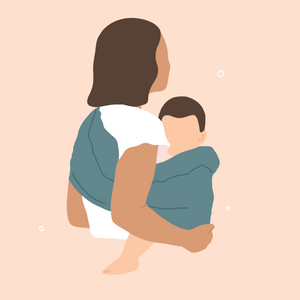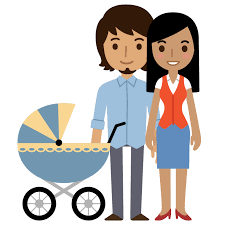Helicopter Parenting
What Exactly Is Helicopter Parenting?
Helicopter parents are parents who pay great attention to their children's activities and education in order to not only protect them from pain and disappointment, but also to assist them in succeeding. Helicopter parents are known to hover over their children and become too involved in their lives.
Meanwhile, the term "helicopter parent" is used in popular media to denote parents who are overprotective of their children.
The term "helicopter parent" first appeared in a 1969 book titled "Between Parent & Teenager," in which a teen said that his mother hovered over him like a helicopter. Since then, many college administrators have used the word to refer to parents who continue to keep an eye on their children from afar after they have left for college, and the term has spread to include all overprotective parents.
Characteristics in Common
Overprotective attitudes are what most people associate with helicopter parenting. However, this definition can be overly restrictive at times. These are the parents who are always on top of things, but to a fault.
Helicopter parents are highly concerned in their children's life from infancy to college, to the extent where their own activities and hobbies take a back seat. This means that the family budget revolves around what the children require.
They may even put their personal objectives and career ambitions on hold in order to provide for their children's needs.
Similarly, helicopter parents have a tendency to over-schedule their children in order to give them a competitive advantage in everything from school to athletics to music. They may even attempt to manage their child's social standing and friendships. The goal is to provide every chance possible for their children.
Overall, helicopter parents are delighted to be so active in their children's life and frequently do not find any flaws in their parenting. They regard their acts as a way to secure their child's safety while also assisting them in achieving success in life.
Positive Elements of Helicopter Parenting
While the phrase "helicopter parent" is sometimes used disparagingly, it isn't all bad.
You can typically count on the children of helicopter parents to be on time, have their homework completed, and be prepared for their activities.
Helicopter parents of younger children and teenagers are also more likely to be aware of their children's whereabouts at all times, which is a crucial safety factor.
Similarly, helicopter parents are always aware of who their child is with and how well he or she is doing in school. And, if their child is having difficulty in school or is receiving poor grades, they will do everything in their power to assist them.
The same holds true for sickness, bullying, and even mental health issues. Helicopter parents will work nonstop to ensure that these issues are handled.
Furthermore, helicopter parents are typically involved parents who are the first to volunteer for school programmes and may even join the school's PTA. As a result, schools, teachers, and coaches can benefit from the time, energy, and money they invest in making their school, classroom, or squad the best it can be.
Downsides of Helicopter Parenting
Being overly active in the lives of children, on the other hand, might be damaging. Children may begin to feel suffocated and apathetic. They may also have issues with autonomy and independence. The following are some of the potential disadvantages of helicopter parenting:
Prevents the development of problem-solving skills: Problem-solving abilities are necessary for children of all ages. Whether it's a 5-year-old who needs to learn how to sound out words or a 25-year-old who can't find work, children must be able to handle their own problems.
Hovering parents, on the other hand, frequently intervene at the first hint of trouble, preventing children from learning crucial problem-solving skills.
Dependence on parents: Helicopter parents do so much for their children that it can make them reliant on them. If a mother wakes up her 19-year-old every morning to make sure they go to class on time, they will not learn how to do it for themselves. Parents should teach their children how to exist without them.
Helicopter parents frequently advocate for their children rather than training their children to advocate for themselves.
It is crucial for children to be able to ask questions, get explanation, and speak out when they need something. In the workplace, these children will not have Mom or Dad to help them deal with a difficult supervisor or a difficult policy.
Protects children from natural consequences: Children must experience certain natural consequences in their lives. After all, if parents do not intervene, their children will face penalties if they fail. Nonetheless, most helicopter parents supervise their children's activities in an attempt to avoid any bad outcomes.
Interferes with the parent-child relationship: A helicopter parent's behaviour may also interfere with the parent-child relationship. Constantly pestering your child to finish their schoolwork or monitoring their every move is unlikely to help your youngster want to talk to you more. It may instead push your child away.
Characteristics of Effective Parents
How to Make Your Hovering Less Expensive
If you're a helicopter parent, it's crucial to take a step back to let your child to grow, master new abilities, and recover from failure on their own. Giving up control, on the other hand, can be stressful.
Talk to a professional if you're having trouble coping with the worry you feel when you let your child to engage in age-appropriate activities on their own. Allowing your child to make errors, face natural consequences, and experience heartbreak is a crucial part of growing and learning.
Keep in mind that you do not have to back down totally at once. It may be beneficial for you and your child if you ease up gradually.
Give your child a tiny amount of freedom one step at a time, whether they wish to stroll to the shop on their own or work on their science fair project alone. Coach them on a regular basis, and when they're completed, go through how they did. But try not to stand over them while they're working, or worse, perform their work for them.
Other Parenting Styles
It's useful to understand the many forms of parenting while considering helicopter parenting. Parenting styles are classified into four categories in psychology: authoritarian, authoritative, permissive, and neglectful.
However, popular culture acknowledges different types of parents, which frequently reflect generational disparities in parenting. Aside from helicopter parents, the media frequently discusses free-range parents, lawnmower parents, and tiger parents.
Free-range parenting can be a little too permissive. They give their children the freedom to make mistakes, explore, and try new things without too much supervision. They believe that via trial and error, children may learn problem-solving abilities, and they believe that natural consequences are some of life's best teachers.
On the other end of the scale are lawnmower parents. They are well-known for removing any and all impediments to their child's success. They may go to tremendous efforts to keep their children from facing difficult situations.
Meanwhile, once Amy Chua's book "Battle Hymn of the Tiger Mother" became a best-seller, the term "tiger parenting" became common. Tiger parents push their children to succeed by enforcing rigorous rules and living a structured lifestyle that prioritises hard work above leisure.
Here's an illustration of how each parenting style would react to a child's request to walk to the store alone.
"Sure, I'll follow behind you the whole way to make sure you stay safe," says the helicopter parent.
"Sure, can you pick up some milk while you're there?" says the free-range dad.
"Sure, I'll walk ahead of you and make sure it's safe, and I'll inform you when it's okay to cross the road," says the lawnmower parent.
"No, you need to practise your violin for another hour," says the tiger parent.
Yum Yum Mama Says.....
There is no one right or best way to parent a child, just as there is no one right or best way to do anything else in life. Similarly, helicopter parenting isn't always bad—or good. Furthermore, distinct components of various parenting styles will work better for specific families and children than others. Essentially, parents should assess the impact and principles of many parenting styles before implementing the ones that feel right to them.




